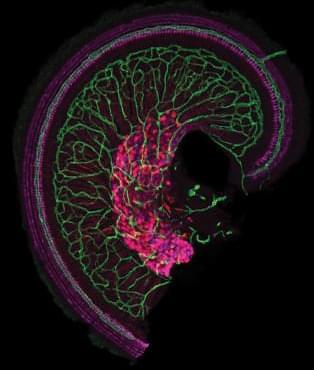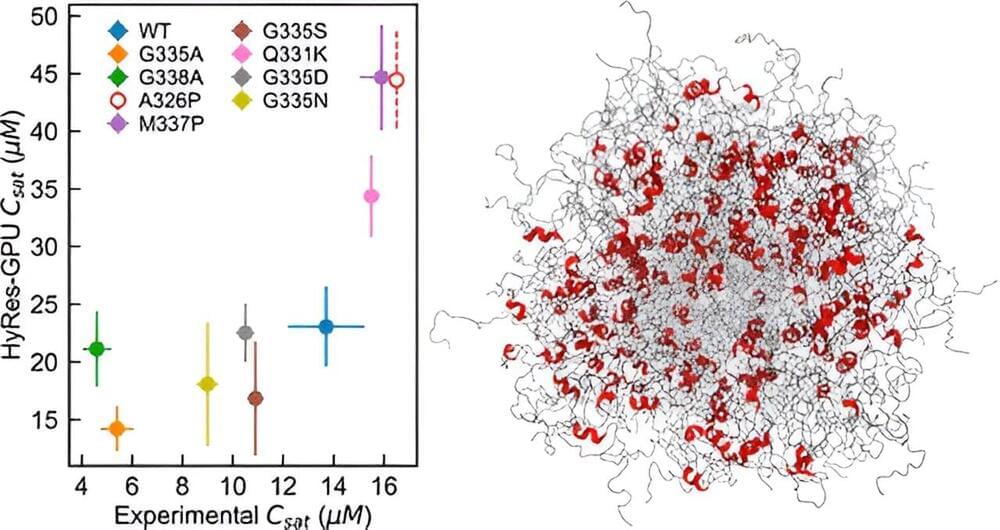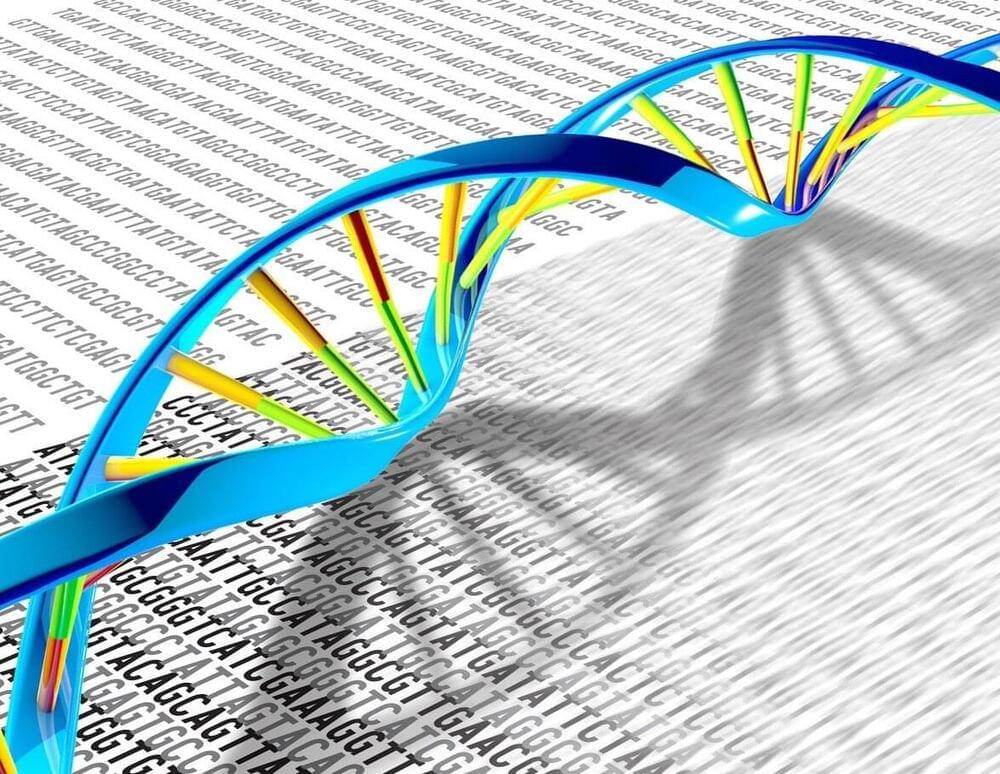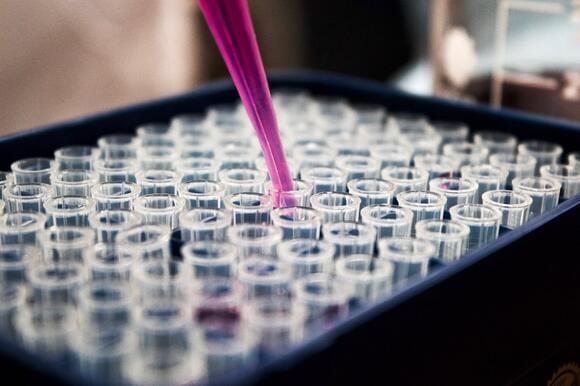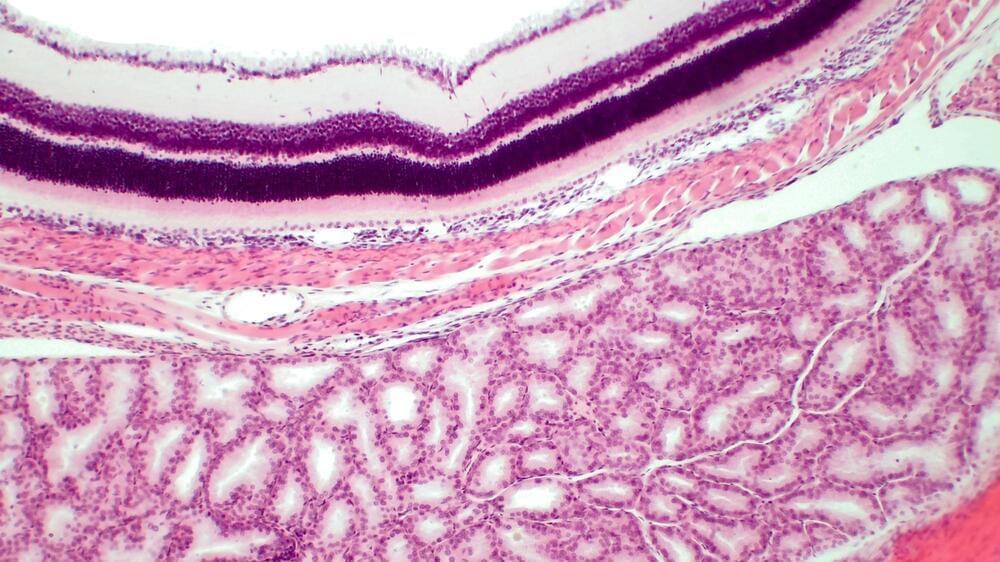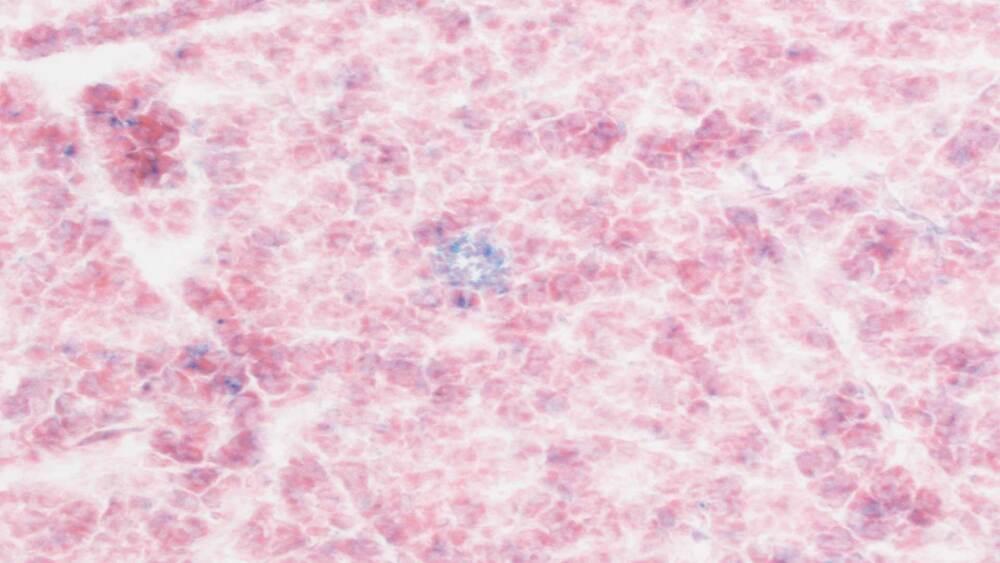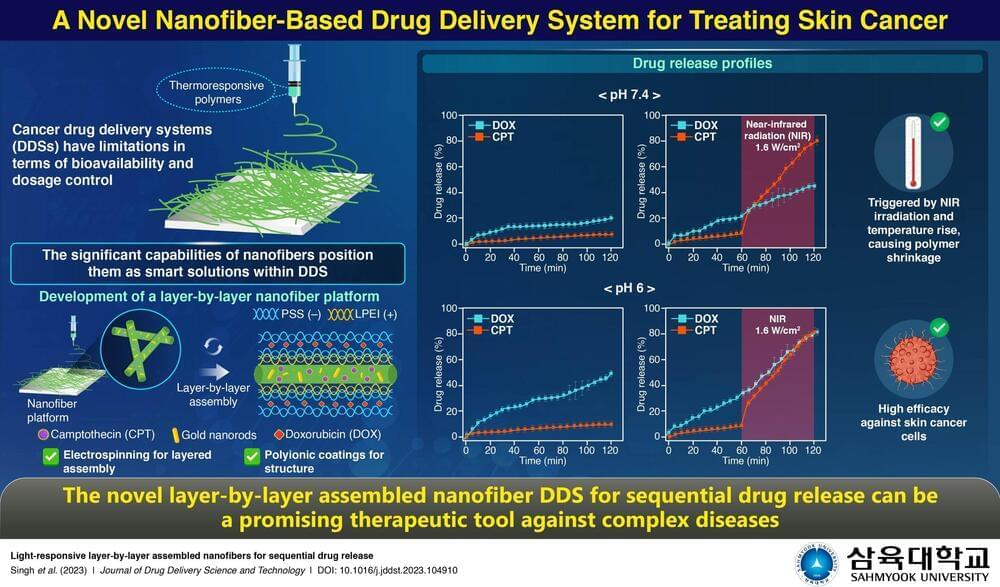Archive for the ‘biotech/medical’ category: Page 345
Jan 26, 2024
New simulation tool advances molecular modeling of biomolecular condensates
Posted by Dan Breeden in categories: biotech/medical, chemistry, neuroscience
A University of Massachusetts Amherst team has made a major advance toward modeling and understanding how intrinsically disordered proteins (IDPs) undergo spontaneous phase separation, an important mechanism of subcellular organization that underlies numerous biological functions and human diseases.
IDPs play crucial roles in cancer, neurodegenerative disorders and infectious diseases. They make up about one-third of proteins that human bodies produce, and two-thirds of cancer-associated proteins contain large, disordered segments or domains. Identifying the hidden features crucial to the functioning and self-assembly of IDPs will help researchers understand what goes awry with these features when diseases occur.
In a paper published in the Journal of the American Chemical Society, senior author Jianhan Chen, professor of chemistry, describes a novel way to simulate phase separations mediated by IDPs, an important process that has been difficult to study and describe.
Jan 26, 2024
New method for incorporating structurally unusual amino acids into proteins
Posted by Dan Breeden in category: biotech/medical
A team of biochemists at the Medical Research Council Laboratory of Molecular Biology at Cambridge has developed a new method to incorporate structurally unusual amino acids into proteins by using bacteria. The method is described in the journal Nature.
Prior research has shown that DNA codes for just 20 amino acids, the building blocks for making all the proteins used by living creatures. These are known as alpha amino acids. Prior research has also suggested that beneficial compounds could be created with a method to create proteins using beta amino acids. Researchers have suggested that applications could include the development of new kinds of medicines and possibly novel catalysts for manufacturing processes.
Such proteins have been engineered via syntheses in the lab. but scientists would prefer a more natural approach, which would be both cheaper and more efficient. This means that a technique is required to get a living cell to generate a desired protein using a beta amino acid.
Jan 26, 2024
Researchers discover why one type of chemotherapy works best in bladder cancer
Posted by Shubham Ghosh Roy in category: biotech/medical
Tisch Cancer Institute researchers have discovered that a certain type of chemotherapy improves the immune system’s ability to fight off bladder cancer, particularly when combined with immunotherapy.
These findings, published in Cell Reports Medicine, may explain why the approach, cisplatin chemotherapy, can lead to a cure in a small subset of patients with metastatic, or advanced, bladder cancer. Researchers also believe that their findings could explain why clinical trials combining another type of chemotherapy, carboplatin-based chemo, with immunotherapy have not been successful but others that use cisplatin with immunotherapy are successful.
“We have known for decades that cisplatin works better than carboplatin in bladder cancer, however, the mechanisms underlying those clinical observations have remained elusive until now,” said the study’s lead author Matthew Galsky, M.D., Co-Director of the Center of Excellence for Bladder Cancer at The Tisch Cancer Institute at Mount Sinai.
Jan 26, 2024
New tool improves the search for genes that cause diseases
Posted by Shubham Ghosh Roy in categories: biotech/medical, genetics
A new statistical tool developed by researchers at the University of Chicago improves the ability to find genetic variants that cause disease. The tool, described in a new paper published January 26, 2024, in Nature Genetics, combines data from genome-wide association studies (GWAS) and predictions of genetic expression to limit the number of false positives and more accurately identify causal genes and variants for a disease.
GWAS is a commonly used approach to identify genes associated with a range of human traits, including most common diseases. Researchers compare genome sequences of a large group of people with a specific disease, for example, with another set of sequences from healthy individuals. The differences identified in the disease group could point to genetic variants that increase risk for that disease and warrant further study.
Most human diseases are not caused by a single genetic variation, however. Instead, they are the result of a complex interaction of multiple genes, environmental factors, and host of other variables. As a result, GWAS often identifies many variants across many regions in the genome that are associated with a disease.
Jan 26, 2024
Chinese Lab Created New Coronavirus, 100% Mortality Rate in Human Transgenetic Mice
Posted by Dan Breeden in categories: biotech/medical, genetics, neuroscience
According to a paper submitted for peer review on January 4th, 2024, Lethal Infection of Human ACE2-Transgenic Mice Caused by SARS-CoV-2-related Pangolin Coronavirus GX_P2V(short_3UTR), a new lab-created coronavirus has the potential to kill 100% of those infected with the virus within 8 days of infection.
The mice were genetically modified to express the human ACE2 receptor. This is the receptor responsible for allowing coronavirus to gain cellular entry. The lab infected mice with a coronavirus engineered from a strain found in pangolins. Pangolins are medium-sized animals growing to 12 — 30 inches in length and have the appearance of a scale-plated anteater.
Researchers monitored the mice for signs of infection by recording body weight, taking tissue samples, and monitoring for other symptoms. By the third day post-infection, tissue samples from the infected mice had a significant amount of viral RNA in the brain, eye, lung, and nasal tissue.
Jan 25, 2024
Retinal thinning linked to Parkinson’s disease progression and cognitive decline
Posted by Shubham Ghosh Roy in categories: biotech/medical, neuroscience
👁️ 🧠 🔬
A recent study published in the journal Npj Parkinson’s Disease investigated whether increased thinning rate in the parafoveal ganglion cell-inner plexiform layer (pfGCIPL) and peripapillary retinal nerve fiber layer (pRNFL) indicates the progression of the Parkinson’s disease (PD).
Study: Association of retinal neurodegeneration with the progression of cognitive decline in Parkinson’s disease. Image Credit: BioFoto / Shutterstock
Jan 25, 2024
Ingenuity is Over and Moon Sniper is On It’s Head
Posted by Greg Allison in categories: biotech/medical, education, food, health

What brought the Ingenuity Mars Helicopter mission to and end and how did the Japanese Moon Snipper land on it’s head?
Outstanding Antioxidant For Your Health: https://shopc60.com/
Use discount code: GreenGregs10 for 10% off.
These statements and products have not been evaluated by the Food and Drug Administration. This product is not intended to diagnose, treat, cure, prevent, or mitigate any disease.
Continue reading “Ingenuity is Over and Moon Sniper is On It’s Head” »
Jan 25, 2024
The fountain of youth is … a T cell?
Posted by John Davies in categories: biotech/medical, genetics, life extension
“If we give it to aged mice, they rejuvenate. If we give it to young mice, they age slower. No other therapy right now can do this.”
The fountain of youth has eluded explorers for ages. It turns out the magic anti-aging elixir might have been inside us all along.
Cold Spring Harbor Laboratory (CSHL) Assistant Professor Corina Amor Vegas and colleagues have discovered that T cells can be reprogrammed to fight aging, so to speak. Given the right set of genetic modifications, these white blood cells can attack another group of cells known as senescent cells. These cells are thought to be responsible for many of the diseases we grapple with later in life.
Jan 25, 2024
Researchers develop nanofiber-based drug delivery system for skin cancer
Posted by Genevieve Klien in categories: bioengineering, biotech/medical, nanotechnology
Treating complex diseases such as skin cancer often requires simultaneous administration of multiple anticancer drugs. The delivery of such life-saving therapeutic drugs has evolved with the rise of nanotechnology-based drug carriers. Nanoplatforms offer numerous advantages, including increased bioavailability, lowered dosages, and improved biodistribution.
Now a team of researchers, led by Professor Myoung-Hwan Park from Sahmyook University in South Korea, has developed a light-responsive nanofiber-based novel drug delivery system (DDS) targeting skin cancer. The DDS was studied in a detailed manner, beginning with its synthesis and characterization to its biocompatibility, drug release profile, and efficacy against skin cancer. These research findings are published in the Journal of Drug Delivery Science and Technology.
Explaining the motivation behind the present research, Dr. Park states, “Conventional drugs can be efficiently delivered in a controlled manner through nano-engineered platforms, and such an approach increases the overall effectiveness of the treatment. This approach improves outcomes in cancer drug therapy by ensuring precise delivery at optimal dosages.”
